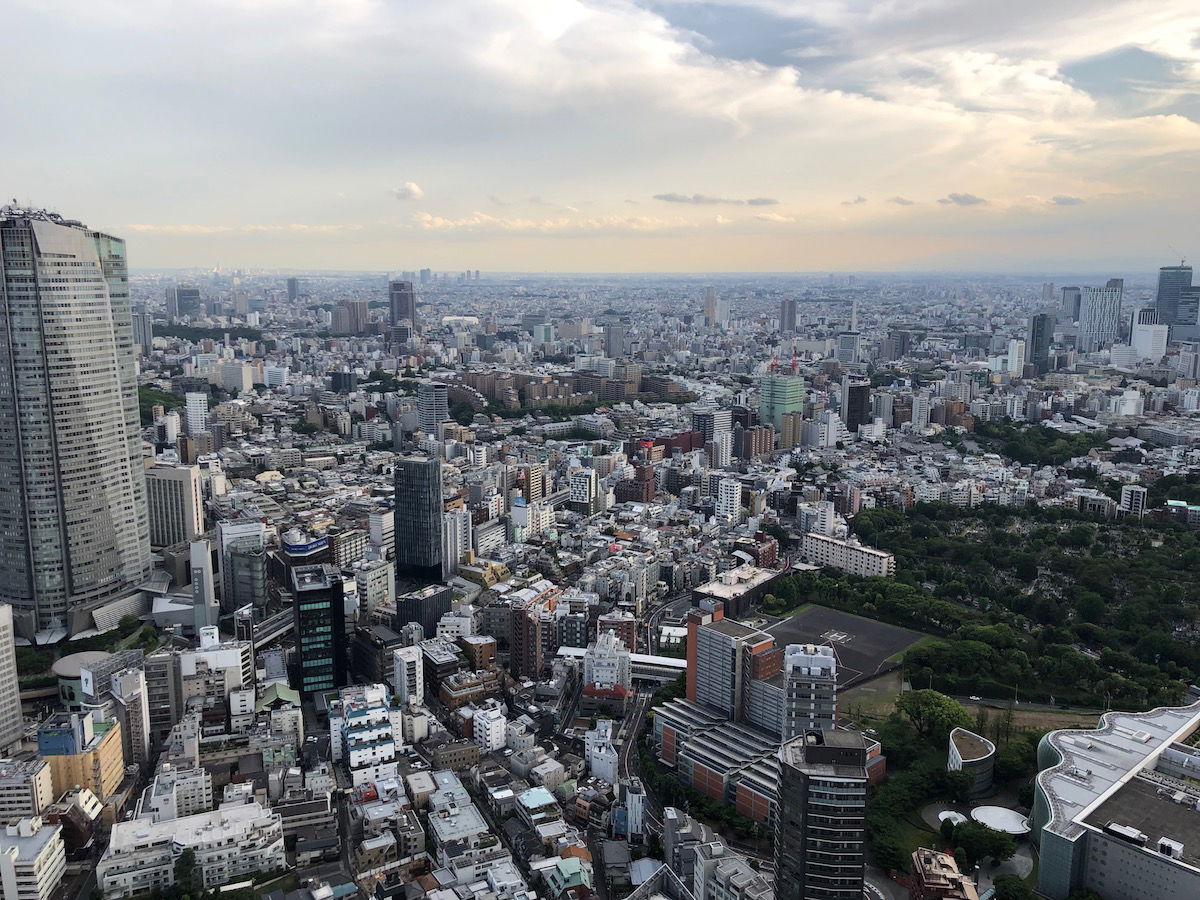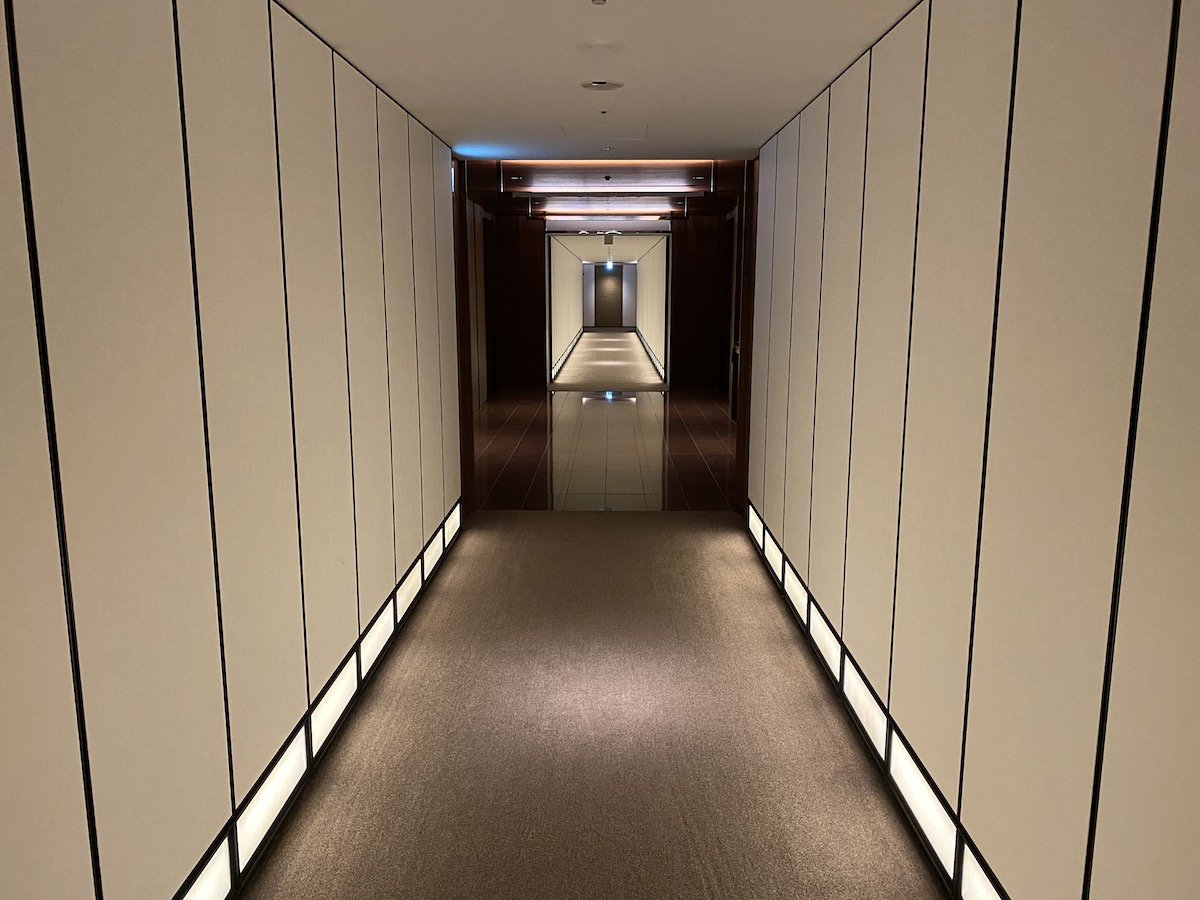Japan is one of the lowest corruption countries out there, so it’s interesting to note what has been uncovered as part of a recent investigation by authorities (thanks to NFSF for flagging this).
In this post:
Hotels met for decades to exchange secret information
Japan’s Fair Trade Commission has issued a stern warning to 15 hotels in the Tokyo area, requesting they immediately cease a decades-long practice that could be considered a price-fixing antitrust violation.
The Fair Trade Commission discovered that representatives from 15 Tokyo-area hotels with different owners would meet monthly to exchange information, including their respective hotel occupancy rates, average room rates charged, and projections about future pricing changes.
Internally, hotels referred to this as “forward reservation meetings,” and the Fair Trade Commission found out that this had been going on for decades.
The Fair Trade Commission didn’t find any concrete evidence of outright collusion, like hotels agreeing to raise prices at the same time. That being said, if hotels share the details of their current rates and occupancy and discuss their projections about future pricing changes, that seems to have the same impact. Hotels have been warned to cease this practice, but haven’t been punished beyond that.
The hotels involved in this investigation include Imperial Hotel, Hotel New Otani, Okura Tokyo, Hyatt Regency Tokyo, Hotel Metropolitan, Keio Plaza Hotel, Cerulean Tower Tokyu Hotel, Hotel Chinzanzo Tokyo, Asakusa View Hotel, Palace Hotel Tokyo, Royal Park Hotel, Dai Ichi Hotel Tokyo, Prince Park Tower Tokyo, Grand Nikko Hotel Daiba, and Sheraton Miyako Hotel Tokyo.

Hotels apologize and voluntarily withdraw from meetings
The hotels involved have sort of apologized for their participation, but of course claim they weren’t doing anything wrong. For example, a representative for the Hyatt Regency Tokyo claimed the following:
“Our purpose in attending the meetings was not to obtain information to be used in setting our prices, but to learn about the overall state of operations at other companies’ hotels, such as the ratio of smoking and non-smoking rooms or the introduction of cleaning robots.”
Given that the meetings were called “forward reservation meetings,” one questions to what extent that’s true. Tokyo has of course seen an absolutely massive boom in tourism, and hotel rates have been through the roof. In some cases, it seems like hotels are intentionally keeping rates really high, even in situations where occupancy might not be that high.
Legal matters are way beyond my area of expertise, especially when it comes to Japanese laws. I’m not sure where exactly the line is drawn with what’s considered collusion, but it sure sounds to me like some of these meetings may have crossed the line.
For example, let’s say a hotel representative in this meeting were to say “currently our average rate is $500 and our occupancy rate is 50%, but we’re going to try to raise our rates by 50%, and hope that it won’t impact our occupancy.” Simply sharing that detail perhaps isn’t collusion, but when hotels cooperate for decades in these kinds of meetings, I think it’s pretty darn close, no?

Bottom line
Japan’s Fair Trade Commission has discovered that for decades, 15 hotels have been meeting monthly to share details like average occupancy, room rates, and projections about future pricing changes. While the authority has stopped short of accusing them of price fixing, hotels have been told to knock it off.
What do you make of these kinds of meetings, and do you think they cross the line?





I'm sure some of you have been to Tokyo enough times to get what I'm trying to say: These hotels vary greatly in their business conditions, as well as ability to get business. Keio Plaza and its 1800 rooms are probably doing way better than Cerulean Tokyu which in spite of its location, is most famous for being used to shoot gay pr0n. And Asakusa View (plus maybe Metropolitan) is probably never in the same...
I'm sure some of you have been to Tokyo enough times to get what I'm trying to say: These hotels vary greatly in their business conditions, as well as ability to get business. Keio Plaza and its 1800 rooms are probably doing way better than Cerulean Tokyu which in spite of its location, is most famous for being used to shoot gay pr0n. And Asakusa View (plus maybe Metropolitan) is probably never in the same class as Okura or Otani? Is 4-star colluding with 5-star a thing?
The cheapest inflexible rate for one night in the cheapest room in the Hyatt Centric in Madrid for 6th May is €632. The most flexible rate for the most expensive suite available (admittedly it's a junior one) at the nearby NH Collection Paseo Del Prado is €150 cheaper than that. No collusion, no price-fixing, just a way of offering fake corporate discounts and milking foreigners wedded to loyalty programmes.
Many industries are using algorithmic pricing that uses software to collude without any meetings. This is especially true with the high end hotel market and the DOJ and FTC have started to look into it in America. https://www.ftc.gov/news-events/news/press-releases/2024/03/ftc-doj-file-statement-interest-hotel-room-algorithmic-price-fixing-case
Price fixing is not only in Japan where they have been caught.
Have travelled to Paris, Rome and London for years, frequently, it appears the hotel legion have gotten together to raise their prices, maintaining them. Paris and Rome have hit the sky.
So lets see if Japan is going to trigger investigations in these countries. I believe it was Hyatt in Japan that triggered it.
Friends have mentioned the same happening in the USA.
They cannot possibly rig a market with thousands of hotels. If you decide to limit your options to what's offered by 1-2 chains, there's nobody else to blame for the consequences of that decision.
This really doesn't surprise me. The price the Grand Hyatt Tokyo commands is _insane_ compared to the quality of the product. Centric Ginza always puzzled me too. Yes it's a popular market, but so is New York. And you'd expect to see more differences in pricing. Andaz/Centric/GH all seem to be able to price the same
US has prosecuted for less. Embarrassing look for Japan’s FTC
Hey Lucky, given that the Andaz wasn’t a part of this, it seems unfair to use a photo from their hotel, right under a comment passing (very fair) judgement about the situation.
Unless the public was informed and invited it sounds like a gathering of mob bosses.
Oh, please, such meetings happen across most industries. When C-suite members meet at a conference or at any other venue, do you think they just talk about golf and soccer? Jezzz.
Airlines get fined for colluding they should too. What’s this crap about fair warning.
So they're just barely avoiding the "cartel" label by fixing prices, but I have to admit this behaviour is something very, very close. Hopefully the shame of being publicly exposed in the international media will cause a rethink. Tokyo hotel prices have become absolutely scandalous of late, no doubt milking the tourism boom for all it's worth.
Hyatt and Hilton price creep in Tokyo has been bonkers. Last trip to Japan was on points, I could not justify the cash rates. 1k a night for Hyatt centric and Conrad is crazy.
So couple of questions
1. How is this that different from STR given what is going on here
2. If this is cartel behavior this seems to have been very very ineffective for 13 of those 15 years...
Plain and easy I stoped going at all and haven’t been back in 6 years now
Hotel seemed to double in price
The Hyatts and well as others have been robbing customers for years claiming high occupancy year round
We all know the truth
Collusion and price fixing
I would argue very single Hyatt in Tokyo except for Tokyo Bay are in on this. Every single one had nearly identical cash prices (to each other as well as Hilton/Marriott) when I was looking to go. 2-3x the prices from my last two visits pre and post COVID.
There's definitely more hotels in on this. I'll bet the Grand Hyatt Tokyo is also in on this. And probably the Hyatt Centric Ginza.
No shot those hotels should be able to command $1k/night price tags, for an otherwise very generic and mid experience.
And $450-500/night for the Hyatt Regency Tokyo and Sheraton Miyako. It's mindblowing that they go for so much. I had a similar room with breakfast at the Sheraton Grand Hiroshima for $200/night in 2022 during peak fall color season. As much as there's some western hotels in Tokyo that I really, really love, prices are getting to where I couldn't justify not staying in a cheaper basic Japanese chain hotel or non-chain ryokan unless I'm using points.
I hear you. The Hyatt Centric Kanazawa is a better hotel than the Ginza and goes for as little as 1/5 to 1/10 of their price (around $100 to $150/night). I only stay at Tokyo Hyatts on points these days because I can't be spending $3500 for a 3 night stay with all the crazy fees and taxes that also add up.
Definitely location matters. Hiroshima and Kanazawa are not Tokyo. That being said, the...
I hear you. The Hyatt Centric Kanazawa is a better hotel than the Ginza and goes for as little as 1/5 to 1/10 of their price (around $100 to $150/night). I only stay at Tokyo Hyatts on points these days because I can't be spending $3500 for a 3 night stay with all the crazy fees and taxes that also add up.
Definitely location matters. Hiroshima and Kanazawa are not Tokyo. That being said, the premium for being in Tokyo should not be a 5x to 10x upcharge, perhaps 1.5 to 2x at most.
When traveling for work, I noticed certain chain hotels have crazy public prices ($1000+) but very reasonable contracted corporate rates. It makes me suspect these hotels are truly targeting corporate travelers to fill up their rooms, and only accepting the general public if they pay irrational prices.
I've seen the same thing.
So is with intercontinental, the GE price is 1/3 book rate
This is happening across the board in the airline and hotel industry. CEO's are talking to one another and competition is being paid attention to. Algorithms play a part in pricing for sure, but sharing inside knowledge is a key part of business. Hell, it happens inside of almost every government.
Well, if it walks like a duck and quacks like a duck...